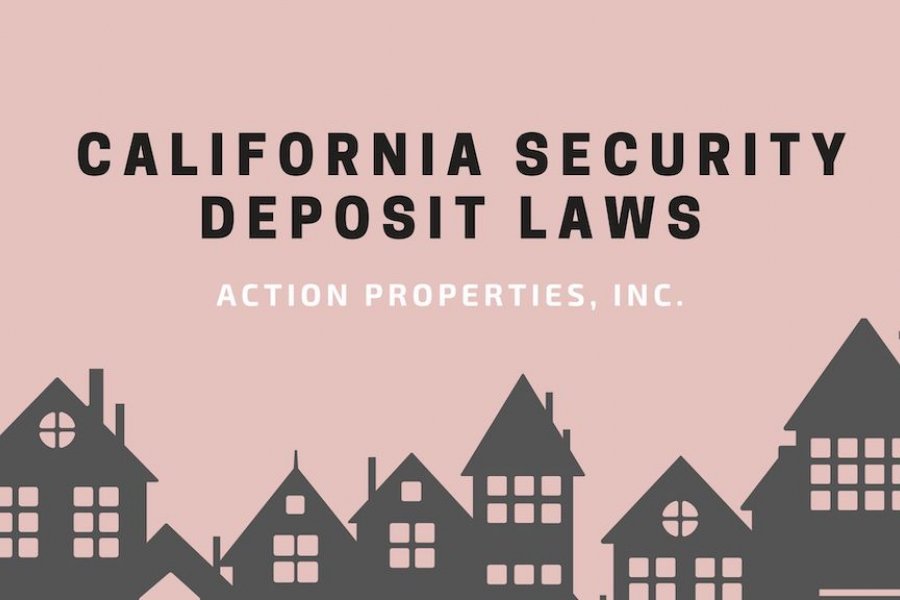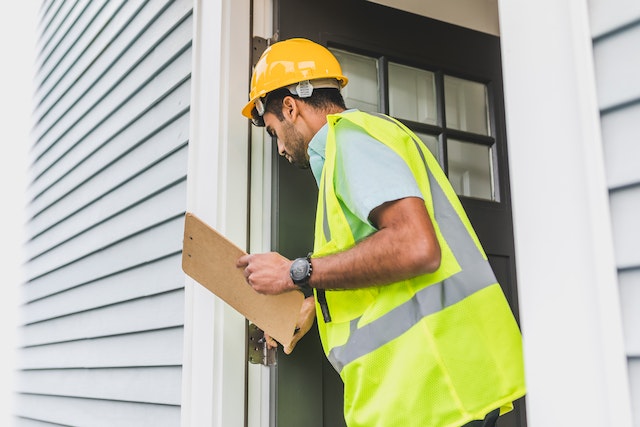
California landlords have a right to charge their tenants a security deposit in their rental agreement. A security deposit serves as financial cushions against certain liabilities that a landlord may incur when renting out a home or rental unit.
Be that as it may, there are security deposit laws in California that every landlord must abide by.
If you’re renting your home for the first time, or simply want to familiarize yourself with California security deposit laws, here are the specific rules you need to stay informed of.
Is there a limit to how much security deposit a landlord can charge in California?
Yes, there is a limit to how much security deposit a landlord can charge a tenant in California in their rental agreements. The exact month's rent amount to charge depends on whether you’re renting out a furnished unit or an unfurnished residential one.
If a landlord is renting out an unfurnished rental unit, the maximum security deposit amount they can charge according to the existing law is equivalent to two month's rent as a security deposit. For furnished units, the maximum security deposit must not exceed the equivalent of three month's rent.
A new bill will go into effect on July 1st, 2024 that caps all California security deposits to one month's rent.
Can landlords in California charge a tenant an additional pet deposit?
Yes, if a landlord's rental agreement allows pets into their rental, the landlord can ask the tenant to pay additional security deposits. The only exceptions to make would be for emotional support animals, service dogs, and psychiatric service dogs.

The total security deposit, however, must not exceed a certain limit. That is, two months’ rent for unfurnished units and three months’ rent for furnished units.
There is also no California law preventing most landlords from charging their tenants a reasoable amount for a monthly pet premium.
Can landlords in California charge nonrefundable security deposits?
No, charging a non-refundable security deposit in your rental agreement is unlawful. California law recognizes security deposits as a tenants' property. A landlord may, however, have a right to make certain allowable deductions from the security deposit for damage beyond ordinary wear and tear or to pay monthly rent after the tenants move out, so long as the tenant is provided an itemized statement of these deductions.
How must landlords store security deposits?
Landlords are required to store the security deposit of their tenants, however California doesn’t mandate landlords to store it in a specific way.
Do landlords have to provide tenants with a receipt of the security deposits?
No, a landlord doesn’t have to provide their tenants with a written notice of receipt after receiving their security deposit. But while security deposit laws surrounding security deposits may not require it, having written proof may be worthwhile for record-keeping purposes.
In the notice, a landlord may want to let their tenants know of important things like:
- The security deposit the landlord received.
- The date the landlord received it.
- Where the landlord is storing the deposit.
- What the tenants must do to get a refund.
Can a landlord keep a tenant’s security deposit in California?
Yes, you may be able to keep part or all of the security deposit under certain circumstances. The following are legally justifiable circumstances.
- To cover unpaid rent.
- If the tenant causes negligent damage.
- Costs of cleaning the property.
- Paying any debts that may have accrued as a result of the tenant not abiding by the terms of the lease agreement.

Please note that you cannot keep a tenant’s deposit for the following two reasons. One, using the tenant’s deposit to cover normal wear and tear. Examples of normal wear and tear include warped windows, lightly scratched panes, minor water marks, and faded paint.
You can only charge a tenant for damage exceeding ordinary wear and tear using their security deposit. Examples of damage that are beyond normal wear and tear include torn or missing curtains, a broken refrigerator shelf, missing blinds, clogged sinks, cracked bathroom tiles, or missing door handles.
You must also not charge a tenant for any condition that existed prior to the tenant moving in using the tenant's security deposit.
Can landlords in California perform a walk-through inspection?
Yes, as a California landlord, you can perform a walk-through inspection. The goal of the inspection is to allow you to examine the condition of the rental relative to its move-in state and prevent security deposit disputes.
The following are the steps you must follow when conducting a walk-through inspection:
- Notify the tenant of your intention to carry out a walk-through inspection.
- If the tenant agrees, you must carry out the inspection at least 2 weeks before the end of the lease term.
- You must send the tenant a 48 hours written notice prior to the inspection date.
- After the inspection, you must provide your tenant with a list of all needed repairs.

When should landlords in California return their tenant’s security deposit?
Returning security deposits (or whatever remains after deductions) must be done within 21 days after the tenant moves out according to California law. If making deductions, you must provide your tenants with an itemized statement. The itemized statement should include the following:
- The security deposit amount you received.
- An itemized statement of any deductions you’ve made to the tenant’s deposit.
- A good faith estimate of any work that is yet to be completed.
- The amount of security deposit that you’re returning back to the tenant.
What should a landlord do if they sell the rental?
You’ll have two options to consider. The first option would be to give the security deposit to the new owner, subtracting any allowable deductions and providing the tenant with an itemized statement of those deductions. You must then give the tenant the incoming landlord’s name and contact details. You must also notify both the new landlord and tenant of the security deposit amount, as well as any deductions you’ve made.
The second option would be to return the security deposit, less any allowable deductions, to the tenant. Then, you must notify the incoming landlord of three things. That is, the remaining balance of the security deposit, any deductions you’ve made, and your decision to return the deposit back to the tenant.
Bottom Line
Do you still have more questions regarding the California security deposit law? Action Properties, Inc. can help. We can help minimize your hassles, protect your investment, and maximize your ROI. Get in touch to learn more!
This blog should not be used as a substitute for legal advice from a qualified attorney in your state. Laws change, and this post might not be updated at the time of your reading. Please contact us for any questions you have in regards to this content or any other aspect of your property management needs.